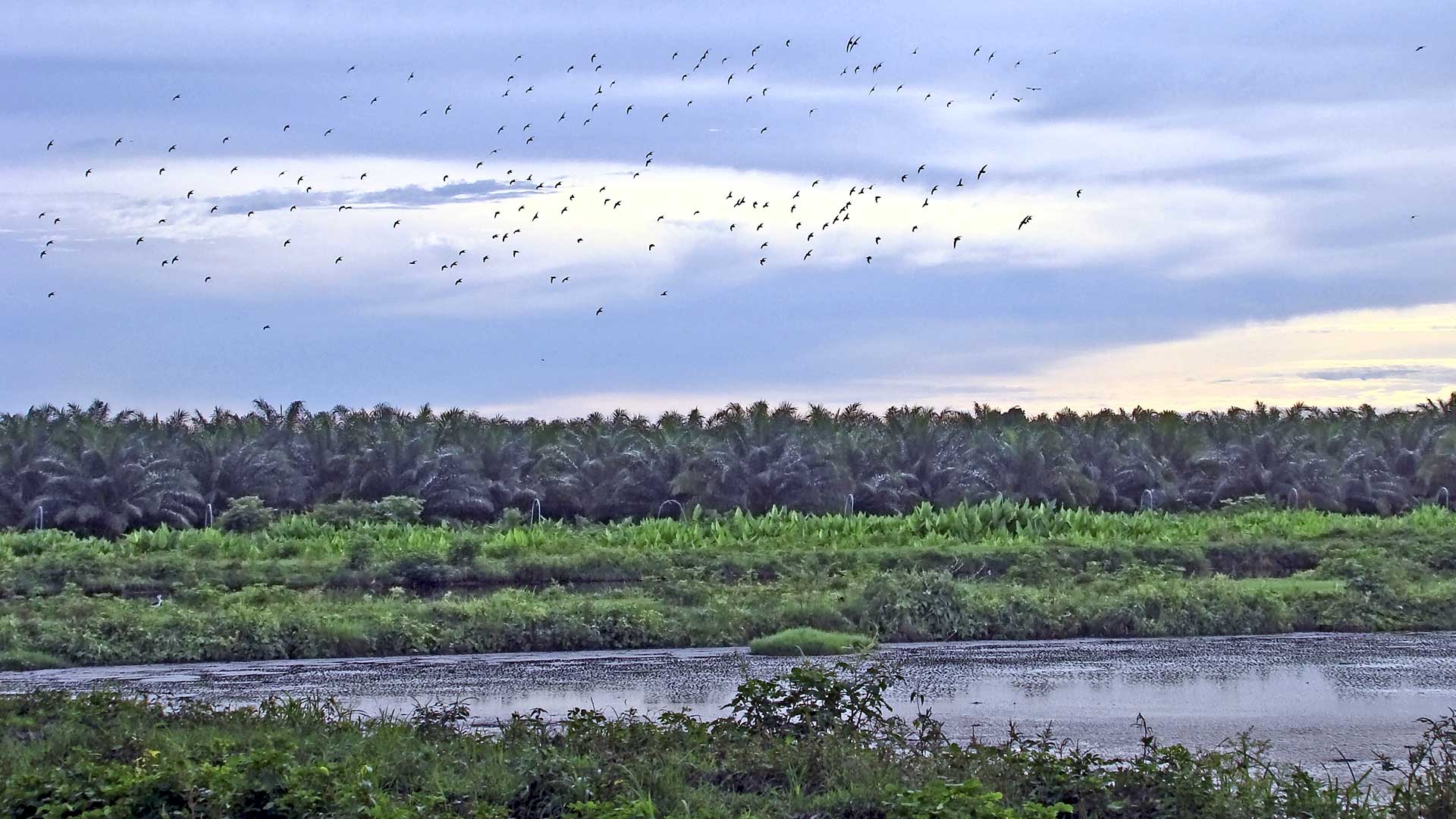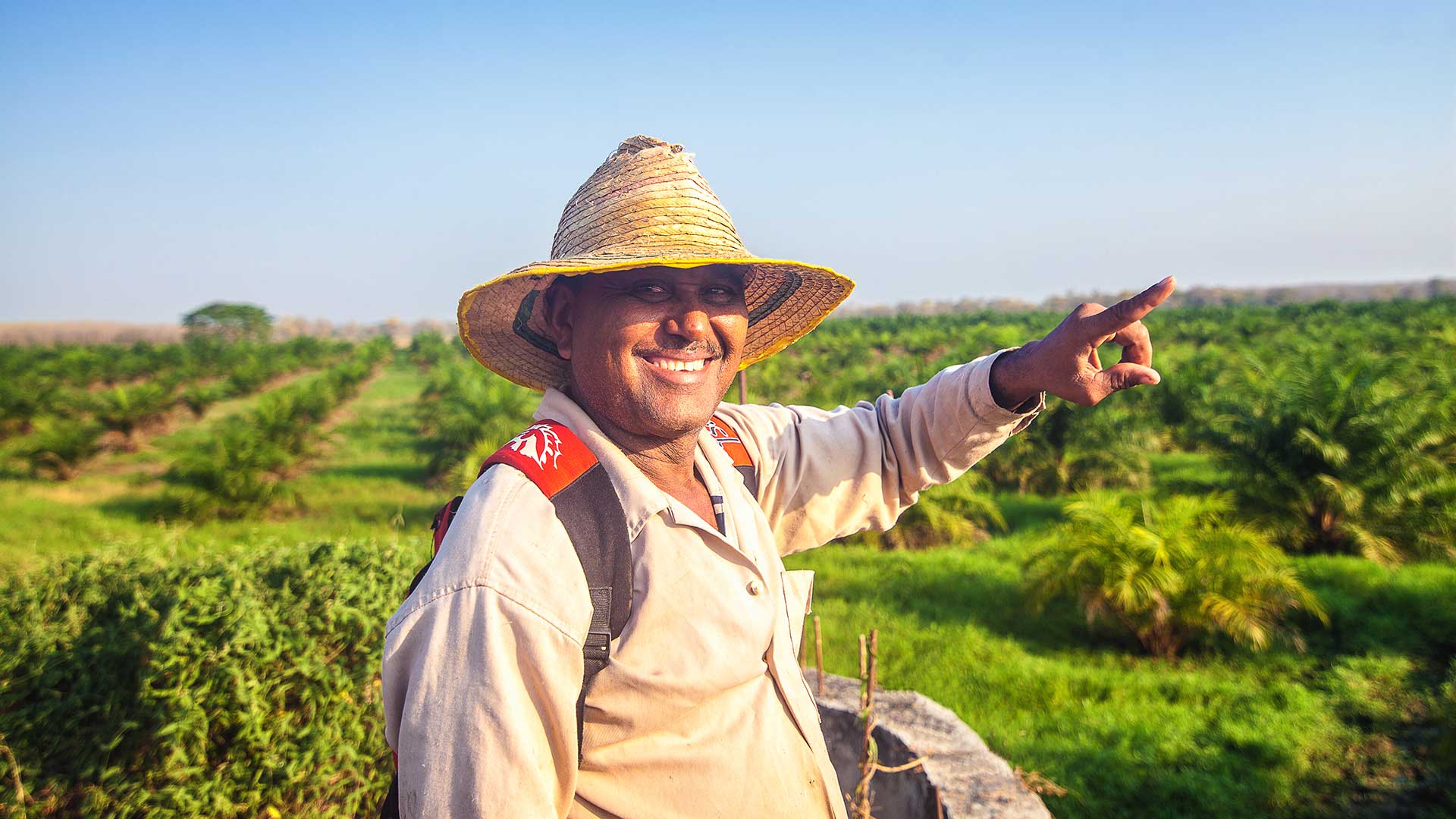
The Country Where Palm Oil Is A Case Study For Sustainable Farming
It’s undeniable that palm oil has received a lot of justified criticism in recent years, but in a new wave of sustainability focused farming, farmers in Colombia have taken opportunity to benefit from the miracle oil palm without ecological damage.
In Colombia, oil palm trees sit in harmony with the beautiful landscape around them: and plantations work with the environment. Not only does it help thousands of families across the country to earn a living, it’s at the forefront of global ethical and sustainable oil palm farming.
Associated with widespread deforestation in various parts of the world, the oil palm tree is a crop of increasing concern for environmentalists. However, in Colombia, the fourth largest producer worldwide, there has been a symbiosis of conscious work between growers, the government, and the private sector, to build a sustainable model.
Led by Colombia´s Federation of Oil Palm Growers, (Fedepalma), the country’s model aims to create a reliable source of income and a quality ingredient for food, personal care products, and even fuels, all without damaging the country’s rich biodiversity.
So, what are the Colombian palm oil sector and Fedepalma doing differently to the rest of the world?
A Multipurpose Crop
Ethical and sustainable farming in Colombia can be a challenging endeavor, not least of all because of the country’s unique position on the continent and its unparalleled natural environment: According to the United Nation, it’s the second most biodiverse country in the planet, just after Brazil.
Within this context, it could be surprising to learn that the oil palm plays a pivotal role as a sustainable crop. Not only has it become a legal and stable source of income for thousands of families across the country, but it is also one of the few crops that could be used in its entirety. Part of its global popularity is its utility in many different industries, meaning most of the goods we use and consume today have palm oil as an ingredient.

Oil palm is the most efficient source of vegetable oil due to its extremely low use of land and other resources to grow. According to a paper from Fedepalma, for each planted hectare, farmers produce about 3,600 kg of oil. In contrast, crops like soy or rape only produce 300 kg and 780 kg, respectively. The oil palm requires less water, less fertilizer, and less pesticides making it something of a miracle crop, but the way it tends to be farmed has tainted its reputation and negated the sustainable potential.
Primarily, palm oil is derived from the fruit of the tree and is used to make different foods such as salad dressings, baked and fried goods, margarines, special fats, cereals, and pet food. The oil is also used to produce detergents, cosmetics, candles, paint, and even biodiesel, which by its sustainable origin achieves a significant reduction of greenhouse gas emissions.
In fact, the most crucial and little-known use of the oil palm is in the energy sector. The biomass, including the fiber, empty fruit bunches, and shell obtained from oil extraction process are used to generate low carbon renewable power. The oil palm sector in Colombia has a greenhouse gas reduction potential of 1.4 million tons of CO2 equivalent per year, through the mitigation of methane gas (CH4) that is generated in the wastewater treatment systems of 70 oil palm fruit mills in Colombia.

In fact, recent studies revealed that the oil palm crops in Colombia have for the most part, replaced previously degraded land and does not affect native forests and their species: it’s a South American country that has not a caused deforestation in the Amazon to create oil palm agri-industry
Colombia’s currently has five million hectares, within its agricultural frontier undeveloped, land ideally suited to growing oil palm, without affecting natural forests or protected areas. The transformational effect on in the communities that could farm it would be enormous.
Roots for a social reconstruction
Affected by the pressure of armed groups and the low price of fruits like cacao or banana, historically many farmers were forced to produce illegal crops to make ends meet. The oil palm presented an opportunity for a new beginning and a way to provide for communities like never before.
Recent statistics from a study sponsored by Fedepalma revealed that for each 1% increase of oil palm tree plantations, there has been a direct reduction of 14% of illegal crops. As hundreds of farmers transition to legal production, they also have the opportunity to take part in the established supply chain – guaranteeing everything from finance to grow businesses, to buyers and oil producers.
The oil palm tree could be a catalyst for environmental and societal change if more countries adopted the same model as Colombia.

